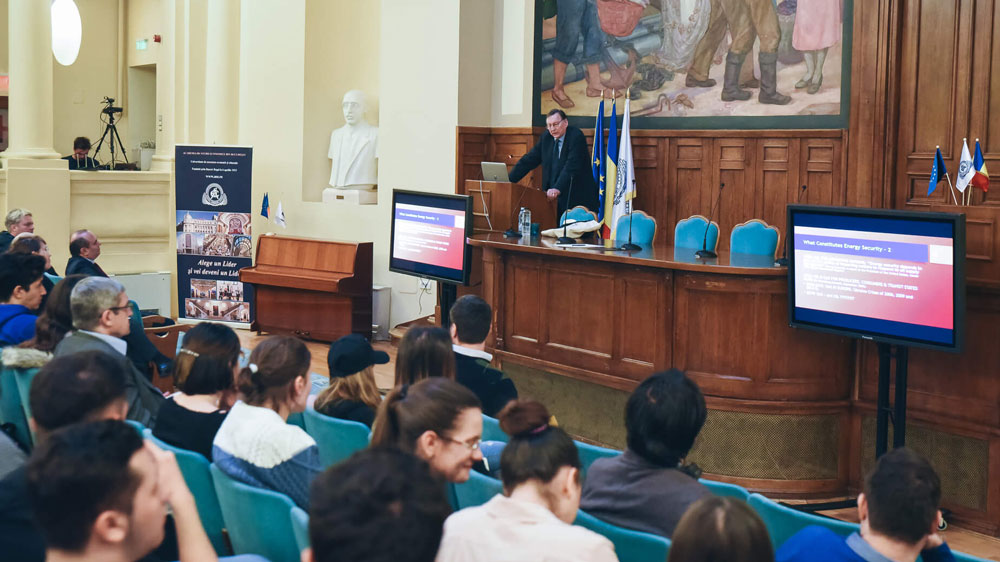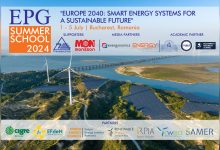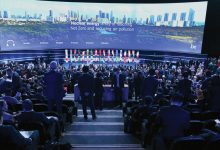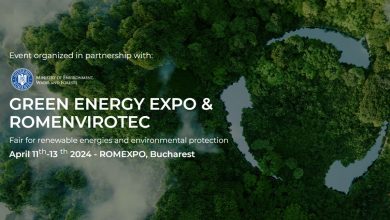ROEC Bucharest Talks – Black Sea Energy Security
John Roberts: Romania’s Black Sea gas – ‘not earth-shattering’, its likely natural gas exports – ‘a modest contribution’
On March 12, the think tank Romania Energy Center (ROEC) organized a new event part of the ROEC Bucharest Talks series. The project itself was launched by the think tank in 2018 to engage the biggest names (in 4 core areas of interest) in meaningful conversation on current affairs topics in order to stimulate high-quality intellectual debate and create opportunities for dialogue between the Romanian public and high-profile international experts. This 3rd talk was a lecture by British energy security expert John Roberts – a household name for anyone working in energy geopolitics. The event was organized in partnership with the Bucharest University of Economic Studies and with the support of Energy Industry Review, Civitas Politics, Revista 22 and Impromedia.
The guest speaker
John Roberts has five decades worth of experience as a correspondent, bureau chief and energy analyst having worked for Reuters, Platts, Financial Times Energy, Energy Intelligence, Middle East Economic Digest, Business Monitor International (BMI) and Al Hayat. Currently a member of the United Nations Economic Commission for Europe Group of Experts on Gas, Roberts is a Senior Fellow with the Atlantic Council’s Eurasia Center and Global Energy Center. His latest think tank publications for the Atlantic Council include such reports as ‘Three Pipelines and Three Seas: BRUA, TAP, the IAP and Gasification in Southeast Europe’ (2018), ‘Completing Europe. Gas interconnections in Central and Southeastern Europe — An Update’ (2016); and ‘The Impact of Turkish Stream on European Energy Security and the Southern Gas Corridor’ (2015).
The highlights
The expert started by emphasizing that “energy security these days is more about gas, not oil”. Oil is fungible, gas is not. Gas requires expensive and complicated infrastructure (pipelines, LNG, or CNG) and it “costs twice as much to shift a unit of energy in the form of gas than it costs to move around a unit of energy in the form of oil”.
There is no single definition on what constitutes energy security. The terms do not mean the same for everyone, especially if adjectives (which are subjective) are involved such as: sufficiency, surety, survivability or sustainability. For instance, what is sustainable in a rural climate is not sustainable in densely populated cities.
The speaker explained the fundamental difference between pipeline versus LNG and why it matters. The pipeline gas is a ‘bilateral affair’ (a direct relationship between buyer and seller) while LNG means the possibility to send it anywhere in the world – essentially, more flexibility.
Talking about Russia and its price discrimination in different markets, he asked: why did Russia charge Macedonia 564 USD/1,000 m3, the UK – about 300 USD when others spent far less? Because Macedonia was not connected to anybody else and had no other choice. According to Roberts, this is ‘classic monopolistic practice’ – a perfectly standard practice which does happen with other industries and other countries as well. The solution to this is to work out ways to avoid dependence on a single supplier. However, this is not easy to do, particularly in regions that have been historically dependent on Russia for natural gas. And this dependence on Russian gas in Europe will grow, he warns. He predicts that faced with climate change concerns and energy transition, Europe will offer a growing market for Russian gas (which, already big, will get even bigger), especially in the context of declining indigenous European gas production. Any hope for gas diversification in Europe comes from LNG, and in particular US LNG which he dubs as ‘a really good long term bet for gas supply’.
In his view, energy interdependence works only if you have a diversity of potential supply sources. However, “you don’t need to be energy independent” to be energy secure. One of the dangers of trying to be energy independent is to end up with a closed market which creates a whole network of subsidies domestically. And “generic broad-based subsidies tend to cause generic broad-based problems”. The solution is not a closed market, but trade, because trade creates market prices.
Regarding the Black Sea area, he outlines that the invasion of Crimea and its seizure by Russia created a quantitative change which resulted in the resource development around Crimea being in effect taken off the table, depriving Ukraine of ¾ of its maritime offshore resources. So, it’s not about “a plus going into Russia’s column, but about a minus going into Ukraine’s column”.
Finally, probably the most important point about the Romanian Black Sea resources was that they are “useful, but not earth-shattering discoveries”. They are commercially viable in a local context, so their purpose will be mainly local leaving a “small amount for seasonal export or even a small amount for year-round exports”. The takeaway: Romania will be once again (as it was) self-sufficient in gas, but not a major gas exporter.
On BRUA
As far as gas pipelines are concerned, he talked about BRUA in the context on Turkish Stream (second line). Sales of Russian gas to Europe have increased and the prices have recovered which now gives Russia the surplus income to build the second line of Turkish Stream (which will go to Baumgarten). Commenting on the scope of BRUA and its likely success, Roberts reminded that BRUA is a limited capacity line if compared to Russian pipelines (which are gas systems commonly carrying around 30-33 Bcm). BRUA is designed to carry 4.4 Bcm – “a modest and useful contribution” in his opinion, but which will not solve the major energy security problem which is: where do you get your gas from, if for some reason (any reason) your chief supplier cannot supply you? The Southern Gas Corridor is Europe’s response to this exact issue. BRUA has received financial support from the European Commission because of that. However, at a 4.4 Bcm capacity, BRUA is “too small for an insurance policy” he thinks. It would make sense to double the existing capacity of commercial priority projects (in BRUA’s case – a larger diameter pipe, or a tougher pipe and spare capacity in the form of extra compression).
In addition, he questioned whether BRUA will be able to fulfill even its original purpose of connecting Bulgaria with Romania, Hungary and Austria. “The Hungarians are supposed to be cooperating”, he went on. “But, are they in practice?” he asked rhetorically. The Hungarians have suggested not using the congested link between Hungary and Austria, but use an existing link between Hungary and Slovakia instead. But, if Romania cannot link with Baumgarten at the far end, what is the point of connecting BRUA with the offshore fields? What is the purpose of Romania’s offshore gas fields? Only for domestic use? It can still make sense, the expert thinks, but “it basically, returns Romania to being what it sought to be in the Soviet days: an independent energy island.” As, for Turkish Stream, it “will proceed apace, aided by Hungary.” This message should worry Romania greatly.
To watch the full video recording of the event, go here: www.roec.biz/event/john-roberts-black-sea-energy-security/ More about ROEC Bucharest Talks project here: www.roec.biz/roec-bucharest-talks/







